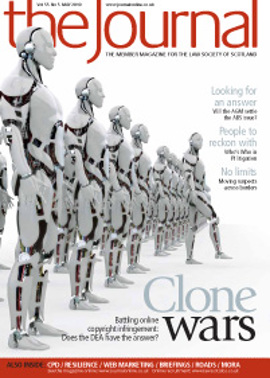Keeping tabs on the EU
I was very surprised to read the article by Michael Torrance, “Keeping tabs on the EU” (Journal, March, 28), for a number of reasons.
First, it compares the European Union scrutiny activities of the UK and Irish Parliaments with those of the devolved bodies in the UK. As member states of the European Union, the UK and Ireland, and their Parliaments, have powers under the treaties which devolved bodies simply do not have. These powers are strengthened by the Treaty of Lisbon, which introduces a “yellow card” which member state Parliaments can play against European Union proposals. Despite some popular misconceptions, no such power exists for the Scottish Parliament or the Welsh or Northern Irish Assemblies.
Neither do I feel that the article accurately reflects the situation of the other devolved assemblies in the UK. The role of the European Committees of the devolved assemblies extends beyond scrutiny, as our recent report on the financial crisis highlights. This was welcomed by the Scottish Government and European Commission and was considered to be a valuable contribution in identifying how best to deploy effective measures in support of recovery.
Different devolved assemblies have encountered different challenges in relation to scrutiny, and the Northern Ireland Assembly has recently completed a comprehensive report considering how it might handle European issues. This was the result of a major inquiry in which the Scottish Parliament was heavily involved. I myself gave evidence to it on two occasions, as did our European officer, and the bulk of the Northern Irish committee spent a day in Edinburgh looking at our processes. I think that you can read our experience into much of that committee’s report, for example the recommendation to appoint a European officer – which we were the first devolved body to do, incidentally.
There are some real difficulties in scrutinising European Union legislation for devolved parliaments and assemblies, in terms of their powers and co-operation from Government. The article speaks approvingly of the Welsh committee’s recommendation that Welsh explanatory memoranda be produced by the Welsh Government, but, as far as I am aware, the Welsh Government has refused to do this.
We also all suffer from the confidentiality that surrounds discussions between the UK and devolved Governments prior to European Union negotiations, which makes it difficult to ascertain whether we are being adequately represented by our Governments. However, we have achieved something of a breakthrough on this and are currently agreeing a mechanism to take this forward with the Scottish Government.
It is sensible of course to continually assess one’s approach to scrutiny as the environment changes, and the Treaty of Lisbon does change the landscape substantially. The committee’s current major inquiry is examining the implications of the Treaty of Lisbon and is almost certain to lead to a new approach to scrutiny by ourselves and, I suspect, by our colleagues in Cardiff and Belfast.
- Irene Oldfather MSP, Convener, European and External Relations Committee, Scottish Parliament
In this issue
- Pro bono: making a difference to people's lives
- Goodbye sick note
- Like tears in the rain
- On level ground?
- Keeping tabs on the EU
- Counterstrike
- Supporting excellence
- The final roll of the dice
- Death and taxes
- Pick of the bunch
- Train to gain
- Law reform update
- Meeting the Deans
- Family feeling
- From the Brussels office
- Bank liaison back on track
- Resilience is the key
- Cast your net
- Outside the box
- Ask Ash
- Are you... experienced?
- Handover standoff
- Investing in dispute
- When Nature takes over
- Spilled milk?
- Armed with the law
- When is a "deed" not a deed?
- Blocked in
- Website review
- Book reviews
- Calling time on mora
- Raiders of the lost roads?






